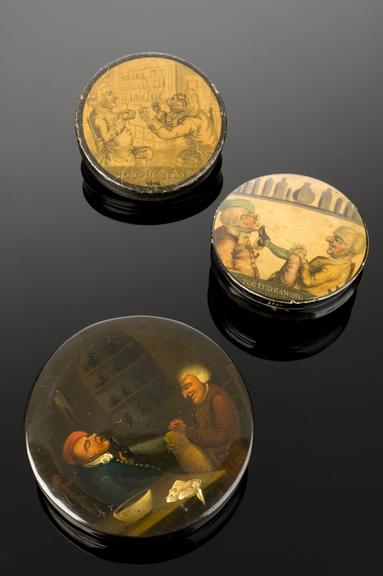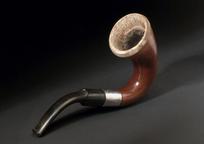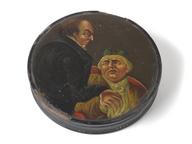





Wooden snuff box, cylindrical, with print on lid of a dentist performing an extraction
A painful tooth extraction is shown on the lid of the snuff box. A piece of string has been secured around the patient’s tooth and is being pulled by the dentist. The patient probably only had, at best, alcohol or herbal concoctions to relive the pain. Tooth pulling was carried out by a range of people including barber-surgeons and travelling practitioners, who often had limited medical skills at best. The illustration would suggest that the process was viewed as somewhat humorous.
Snuff was well-liked for its aroma, taste and stimulating nicotine boost. It was also believed to ward off colds, be good for ear, nose and throat problems and stop snoring. (Pictured here with two other snuff boxes showing tooth extractions, A642702 and A642713).
Details
- Category:
- Smoking
- Collection:
- Sir Henry Wellcome's Museum Collection
- Object Number:
- A642711
- Materials:
- wood
- Measurements:
-
overall: 19 mm 89 mm, .04kg
- type:
- snuff box




